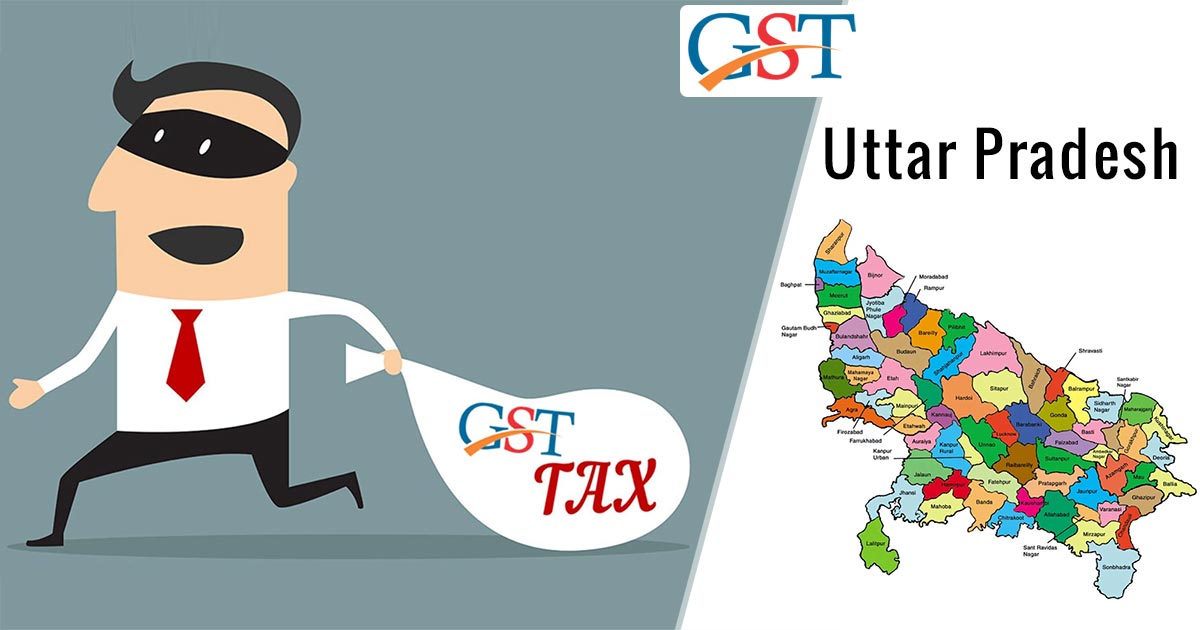Strict actions have been taken by the government against 17,527 alleged tax evaders first time in six months since the introduction of the Goods and Service Tax Regime (GST). According to the data of the finance ministry, it is revealed that Uttar Pradesh state secures the top position in tax evasion which has recorded 8,413 actions against tax evaders under the new indirect tax regime.
Moreover, Andhra Pradesh secures the second position in tax evasion along with records of 5,974 actions and Kerala has recorded 1,538 actions against the tax evaders. In Punjab, the figure of tax evasion is 614 actions taken against the tax evaders which comes after Odisha has recorded 504 actions.
The central tax authority has recorded only one action from a total of 17,527 actions. Punjab is the sole state where the Central government has taken actions against the tax evaders, whereas the remaining 17,526 actions have been filed by the state government authorities.
Till now, no action has taken against the tax evaders in some states such as Maharashtra Chhattisgarh, Haryana, Rajasthan, Tamil Nadu and West Bengal and other states such as Arunachal Pradesh, Assam, Goa, Jammu & Kashmir, Manipur, Meghalaya, Mizoram, Nagaland and Sikkim under the Goods and Services Tax Regime (GST). In the Union Territories, it is found that 4 actions have recorded in Puducherry against tax evaders whereas data figure is not available for the union territories of Chandigarh, Lakshadweep, Daman & Diu, Dadra & Nagar Haveli and Andaman & Nicobar Islands.
Since the introduction of the new indirect tax regime from 1st July, this is the first time that the government has detailed data to take actions against the tax evaders under the goods and services tax regime. The state government is worried about the declining revenues in the new indirect tax regime and the government authorities must have to take strict actions against the tax evaders in the new regime
Vanaja N Sarna, Chairman of Central Board of Excise and Customs said that that the tax authorities were keeping an eye only on the taxpayers on the margin of the exemption threshold whereas it was not taking any action on the six- month transition period but it may hit later. “Till such time, 6-7 months pass, and if I’ll see regularly this, particularly, some unit doing something which is clandestine, not including, not declaring and are aware … Today it’s difficult because when I am a supplier, I have the information. You are hiding it but I am the supplier. I have supplied to you and in my details, I have mentioned you. Now, you may say that I am under Rs 20 lakh, and therefore, I don’t need to (file returns) but I have found that many people are supplying to you and as time goes by, and I find out that actually, you should be in the net. So, I may strike later but at the moment I do not want to rush into it,” said Sarna.
Both the central and the state government tax authorities worrying about the continuous reduction in monthly GST revenues less than the targeted Rs 91,000 crore-mark October onwards. The GST revenue collection for November month fell down to Rs 80,808 crore till 25th December, the worst since the introduction of the Goods and Services Tax Regime (GST). The government had collected Rs 83,346 crores as GST revenue in October month till 27th November, Rs 92,150 crores in the month of September till 23rd October, Rs 90,669 crores in the month of August till 26th September and Rs 94,063 crores in the month of July till 31st August.
In a recent GST council meeting which was conducted on 16th December 2017, an early implementation of e- way bill had been approved by the Council. The Council has decided that the e-way bill is going to be implemented from 16th January on trial basis for the traders and transporters along with final approval of 1st February 2018, as the mentioned date is compulsory for the inter-state movement of goods, earlier the approval date of e-way bill system was 1st April 2018. The deadlines of 1st June 2018 had been approved by the Council in both cases inter-state and intra-state movement of goods under the e-way bill system and also there is an option available that the states can choose the dates as per their feasibility in cases of intra-state movement of goods before 1st June 2018.
E-way bill system is one of the effective measures to reduce the tax evasion under GST, the council also thinking to consider other options such as invoice matching and reverse charge mechanism which were earlier postponed due to the issues faced by businesses.
